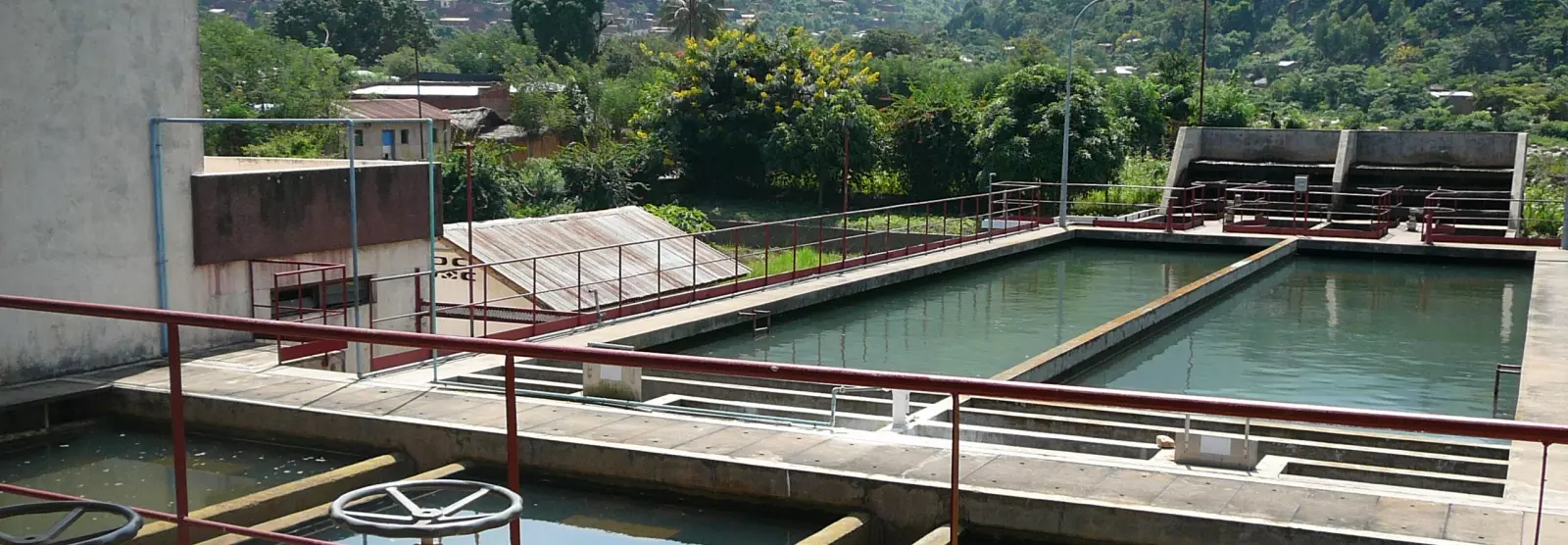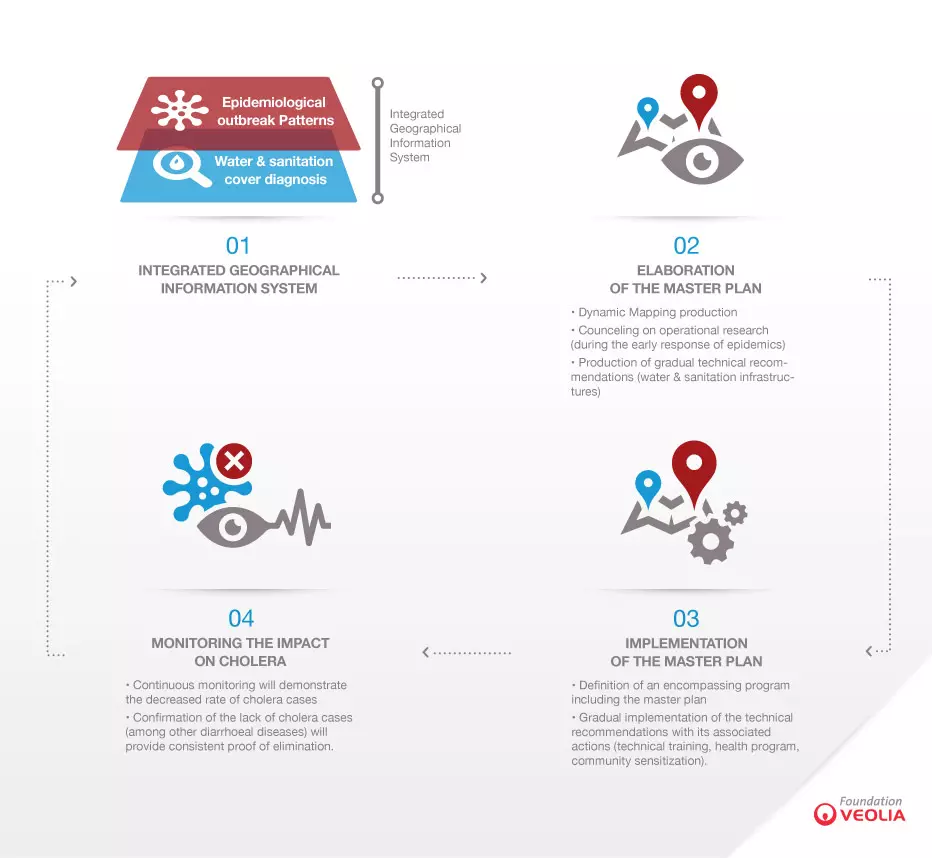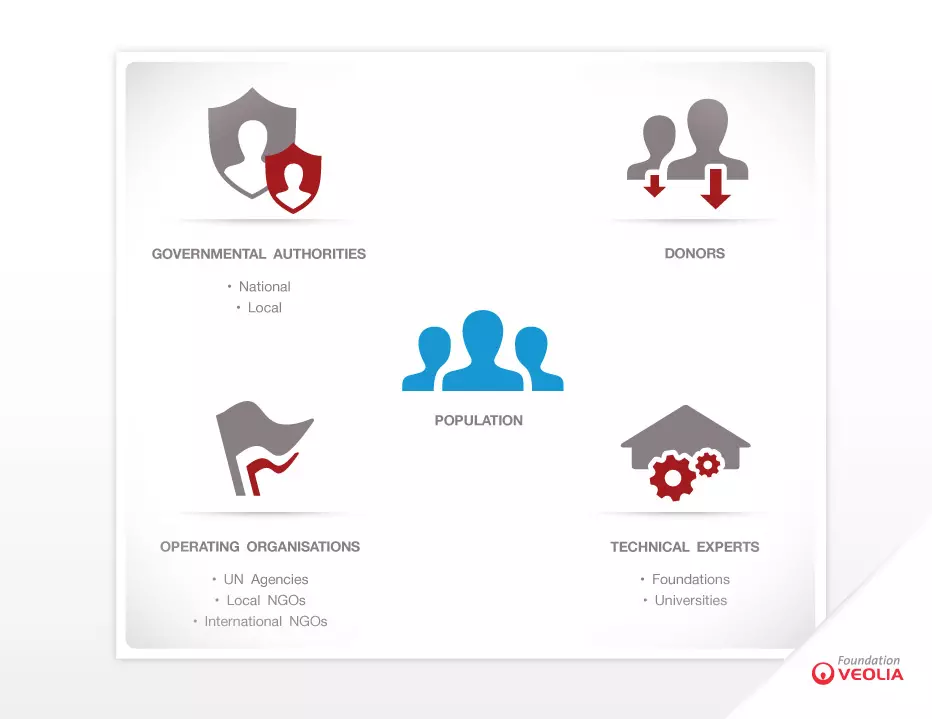
1. Guidance for the elimination of cholera
The description of actions needed for the prevention and the elimination of cholera has been consolidated into a Procedural Guide (See our "Publications" section) comprising three components.
- The first part is focused on identifying the specifics of cholera epidemiology and the methodology used to determine its diffusion;
- The second identifies the water and sanitation infrastructural engineering and hygiene education needed to facilitate the different levels of community intervention;
- And the third provides an analysis of the interactions that will lead to a sustainable strategy for the elimination of cholera and other water borne diarrheal diseases.
2. Epidemiology of Cholera and Methodology
The strategy is based on modern epidemiology that uses Geographic Information System as a tool integrated within an eco-epidemiological framework. This work combines monitoring of cholera epidemics with G.I.S. and field visits for an assessment of source(s) of exposure and transmission mode* of cholera.
The methodology relies on a top down analysis, starting from a comprehensive trans-national analysis narrowed to the understanding of the origin of the epidemics of cholera at the local scale (quarter, street).
---
*This approach was developed in collaborative manner with various researchers from the University of Franche Comté (UMR 6249 – laboratoire CHRONO-ENVIRONNEMENT) and University of Méditerranée, Non-Governmental Organizations such as Solidarités International, and the Ministry of Public Health of the Democratic Republic of Congo.
3. Water, Sanitation & Hygiene for the sustainable fight against Cholera
The water and sanitation engineering expertise is carried out with a focus on securing the distribution of potable water. Therefore, although the totality of the urban distribution will be audited, the technical recommendations will not aim at rebuilding the entire water system. Instead, the latter will recommend hotspots of interventions in close cooperation with the strategic orientations of the local water authority.
To secure a long-term efficiency on cholera epidemics, technical trainings on the maintenance of equipment including emergency use of point-of-use water disinfection chemicals are in parallel ensured.
Hygiene education, essential for personal behavioural changes, is supported by community health specialists or community representatives, at the community level.
4. An integrated approach for the sustainable fight against cholera
The used methodology to implement solid programs for the sustainable fight against cholera, is based on an integrated approach:
- Epidemiological studies first enable a deep understanding of cholera dynamics (onset, transmission and control);
- Interventions are then focused on potable water supply, adequate sanitation, and hygiene education for specific hot spots;
- The combination of the first two steps leads to the elaboration of an integrated Master Plan presenting an epidemiological analysis of a given geographical zone from which engineering recommendations are prioritized;
- Finally, the results of the actions of Water, Sanitation and Hygiene promotion are monitored to verify the actual decrease or ending of cholera epidemics.

5. A collaborative approach for the sustainable fight against cholera
The integrated approach developed for the sustainable fight against cholera is a long run strategy and requires a collaborative approach between essential stakeholders involved in cholera programs on the field.
The Global Alliance Against Cholera advocates for a continuous collaboration in line with a national strategy and action plan, between:
- Governmental Authorities;
- United Nations Agencies and/or Non Governmental Organisations;
- Experts such Corporate Foundations and Research Universities; and
- Fund Donors.

